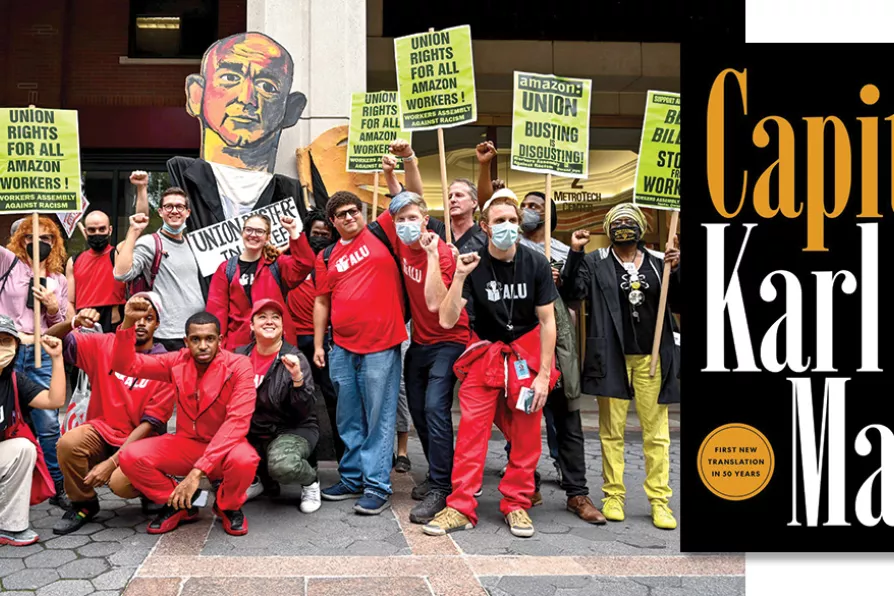DENNIS BROE searches the literary canon to explore why a duplicitous, lying, cheating, conning US businessman is accepted as Scammer-in-Chief

 RESISTANCE CREATES CONSCIOUSNESS: Amazon warehouse workers on Staten Island at the National Labor Relations Board, in October 2021, petitioning it to authorise a union vote
[Joe Piette/flickr/CC]
RESISTANCE CREATES CONSCIOUSNESS: Amazon warehouse workers on Staten Island at the National Labor Relations Board, in October 2021, petitioning it to authorise a union vote
[Joe Piette/flickr/CC]
Capital: Critique of Political Economy, Volume 1
By Karl Marx, translated by Paul Reitter, Princeton University Press, £35
The first English translation in 50 years of Karl Marx’s Capital Volume 1 was published several months ago by Princeton University Press. Translated by Paul Reitter, this version is the only one based on the last German edition revised by Marx himself.
Reitter, in his Translator’s Preface, suggests that previous translations had difficulties in consistently handling Marx’s neologisms, held limiting policies such as noun-to-noun translation, fell short in rhythm and cadence, missed a certain sarcasm, and failed in “preserving the vividness and resonant qualities of the language in Capital.”
The upshot is a more readable, relatable, and refreshed Capital, that is more conversational, with Marx’s own style visible. In a thoroughgoing analysis of production, money, the commodity form, surplus-value, machinery, wages, accumulation, colonisation, and so forth, Marx historises, contextualises, and uncovers exploitative aspects of political economy that bourgeois economists had concealed, naturalised, and presented as inevitable.

A ghost story by Mexican Ave Barrera, a Surrealist poetry collection by Peruvian Cesar Moro, and a manifesto-poem on women’s labour and capitalist havoc by Peruvian Valeria Roman Marroquin

The creative imagination is a weapon against barbarism, writes KENNY COYLE, who is a keynote speaker at the Manifesto Press conference, Art in the Age of Degenerative Capitalism, tomorrow at the Marx Memorial Library & Workers School in London

SETH SANDRONSKY savours a personal account of the life and thought of the great Italian revolutionary










